'Ordered, that leave be given to bring in a Bill for making a Railway from Ashburton, in the County of Devon, to join the South Devon Railway at Newton Abbott, in the same County; and that Sir John Yarde Buller, Mr Gill and Mr Matheson do prepare, and bring it in.'
Journals of the House of Commons, vol 101, part 1, Jan-May 1846, p85
Private
Bills (which became Acts when passed by Parliament) were designed to
mediate between the promoters of private projects - eg railway lines -
and the people who might be affected by them. One factor that might be
taken into account was whether the project was in the public interest.
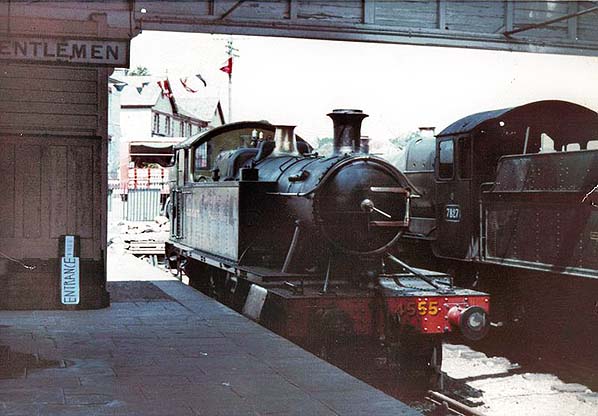
Photo reproduced from Wikipedia under creative commons licence
National Archives BT 41/782/4200
Board of Trade and successors
http://discovery.nationalarchives.gov.uk/ - Accessed 14-1-2014
In 1845 the Ashburton, Newton and South Devon Junction Railway was provisionally registered. It had capital of £60,000, consisting of 2,400 shares of £25 each. A deposit of £1 5s could be made for a share.
James Matheson, MP, was on the committee, as was, amongst others: the Portreeve, the vicar, and the Caunter brothers, John, Richard and Henry.
Western Times 28 June 1845 p3 col5
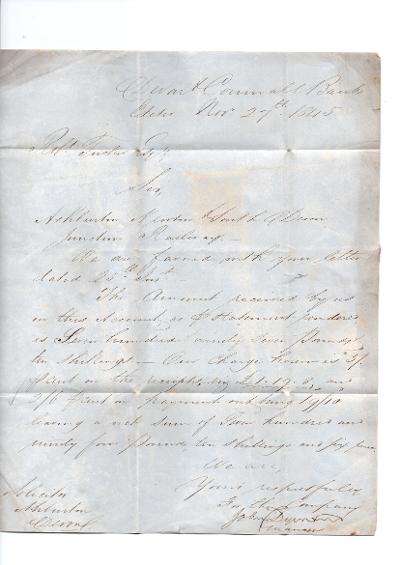
In January 1849 the Ashburton, Newton and South Devon Railway held their half-yearly meeting at Ashburton, and decided to delay construction of the line until the summer. The engineer's report stated that the entire line, 11 miles in all, was marked out, and it was estimated to cost £103,250.
Exeter Flying Post 11 January 1849 p8 col3
'Before the opening of the railways, it was a great thoroughfare for coaches, vans etc.between Plymouth and London.......
........(it is) about 7 miles W by S of the South Devon Railway Station, to which a branch line is projected...but not yet commenced'
Whites History, Gazeteer and Directory of Devon 1850 p461
********
1850 The high cost of transportation by railway resulted in a large proportion of goods being moved by screw steamer from London to Plymouth, and then up to Ashburton by carrier.
Western Times 28 September 1850 p5 col4
1863. Edward Husson, innkeeper, via Mr Astell*, petitioned Parliament on the mileage duty on stage coaches.
Western Times 3 April 1863 p5 col3
* Mr John H Astell, MP
1864 saw the first meeting of the new Ashburton Highway District Board.
Western Times 5 April 1864 p3 col1
1852 Plans to build a railway line between Ashburton and Newton Abbot were abandoned. 'They will yet see their error'
Exeter Flying Post 18 November 1852 p4 col2
1865 The Portreeve, J Fabyan Sparke Amery, wrote to Sir Lawrence Palk, Chairman of the Directors of the Teign Valley Railway Company*, expressing his regret at the rejection of the Teign Valley Railway Bill in the House of Lords.
Western Times 2 September 1864 p8 col2
*When Mary Ann Yolland died in 1888, she held, amongst other securities, one share of £20 in the Teign Valley Railway Co. It was declared valueless at probate.
See Yolland Family documents, under People and Properties.
1867 The Exeter and Plymouth Gazette made a plea for at least one of the two main clocks in Ashburton to be set at the correct time. Neither of them, the newspaper complained, agreed with railway time, making life particularly difficult for those travelling the eight miles to catch a train.
Exeter and Plymouth Gazette 27 December 1867 p7 col2
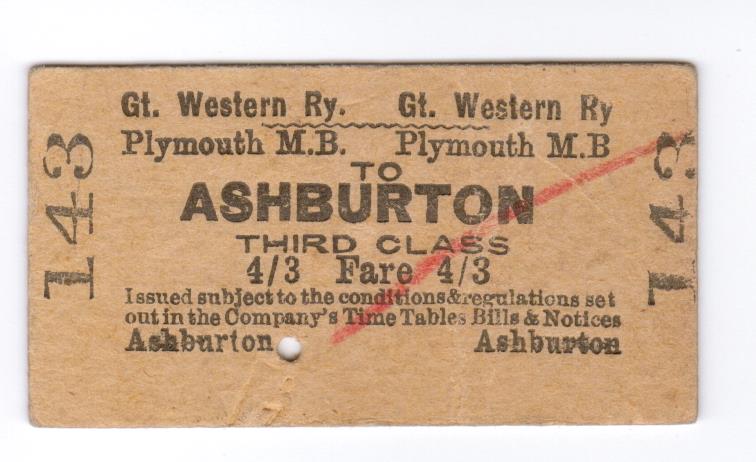
Right: Luggage label
From my own collection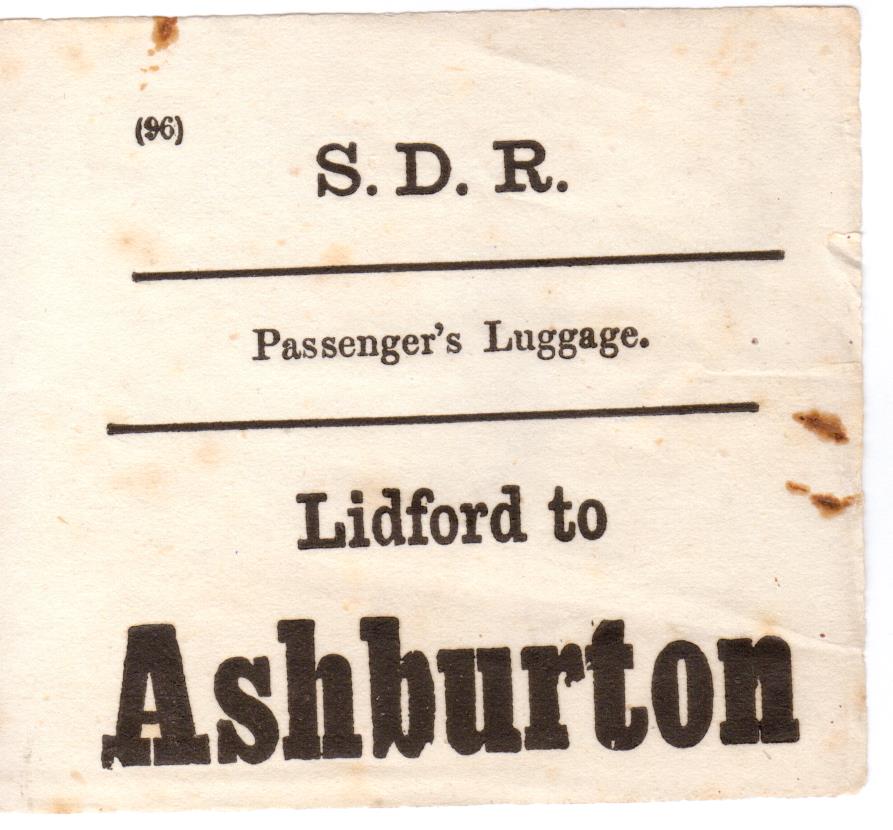
In 1870 The Exeter and Plymouth Gazette reported on some of the works necessary in connection with the new railway. A cutting 5ft 8in deep had to be made in Prigg Meadow, where the railway station was to be built. The excavated material was deposited in the adjoining Cann Meadow, where the level needed to be raised.
The course of the river Yeo was diverted where it ran from Prigg Meadow into Cann Meadow, and water pipes conveying water from Chuley into the town were moved. The rails still went over some of these pipes, so a manhole had been fitted in case repairs were ever necessary.
The town sewer emptied into a large pond beside the station, and this could not be stopped.
Alterations to the parish road to Staverton were causing some problems: the corner by the Gas Works was very sharp, and blasting would have to be employed at the end by Chuley House.
Exeter and Plymouth Gazette 29 April 1870 p7 col5
*******
1872
The new line to Ashburton was inspected in April, by sending a train along it drawn by the heavy Hero engine. Engineers and contractors were aboard, testing that all was well. A large number of people watched the train arrive at Ashburton Station.
Western Times 5 April 1872 p8 col3
*******
May 1872
'Yesterday the inhabitants (of Ashburton) were connected with the outer world by the advent of the iron horse.'
£110 was collected to pay for the occasion, which was marked by the shops being shut, flags flying, triumphal arches being constructed, and trees being planted either side of the main streets.
Loud cheers greeted the engine, decorated with flowers and flags, as it approached. A select number of people lunched at the Town Hall, following a procession, but later there was a 'monster tea' in the market place for about 1,500 people. 'Rural games' were played in a field next to the station, including donkey racing and climbing a greasy pole - the incentive to attempt this was a leg of mutton, hanging from the top.
Western Times 2 May 1872 p3 col2
1873 An argument arose as to whether the Rose and Crown Inn should close at 11pm local time, or conform to Greenwich time, which was kept by the railway. An appeal was set to be heard at the Quarter Sessions.
Western Times 8 August 1873 p7 col2
On Sunday 11th July a porter telegraphed Buckfastleigh to ask if the line was clear. The message did not get through because a tree falling across the line had also brought down the telegraph gear. Getting no reply, the porter eventually sent a train from Ashburton, which then ran into the tree. Two front wheels of the train came off the line, but no other damage was done.
Western Times 13 July 1875 p1 col1
1877 Richard Moore, of Ashburton, died suddenly on Totnes Railway Station platform, whilst waiting for a train. He died on Thursday - the inquest was held on Saturday in the waiting room. The verdict was 'Disease of the heart or other visitation of God': the jury gave their fees to the widow.
Western Times 3 April 1877 p6 col3
1878 Richard Preston, East Street, is shown as the agent for goods and parcels for the Great Western Railway.
John Harris is the Station master.
White's History, Gazetteer and Directory of Devon, 1878-79, pp 109, 110
At the end of March 1900 John Smerdon retired after 40 years service with GWR. He had spent 28 years as guard on the Totnes to Ashburton branch. He was presented with a pipe engraved with his monogram, a walking stick and an engraved silver band. Later, at a meeting of the townsmen at the London Hotel, he was presented with a purse of sovereigns.
Western Times 8 May 1900 p3 col5
********
'The train service was good, a penny a mile third class, 17/5 to Paddington; but to go to Newton (eight miles away) one had to go nine miles to Totnes first and this made the journey expensive. The station master, Mr John Harris, and the guard, Mr Smerdon, wore fine blue uniforms with frock coats and peaked hats. Dignity was theirs. The train stopped just before reaching the platform in order that a porter might collect tickets.'
John Satterly, Memories of Ashburton in Late Victorian Days, Transactions of the Devonshire Association, vol 84, Torquay 1952, p27
50 year old John Harris was the Railway Station Master at Ashburton on the 1891 census. With him on census night was his 31 year old wife Henrietta, 4 sons and 4 daughters, ranging in age from 3 to 29.
1891 census RG12, piece no./folio 1698/4, p1
John Harris, aged 64, died in the June quarter of 1903.
https://www.freebmd.org.uk/
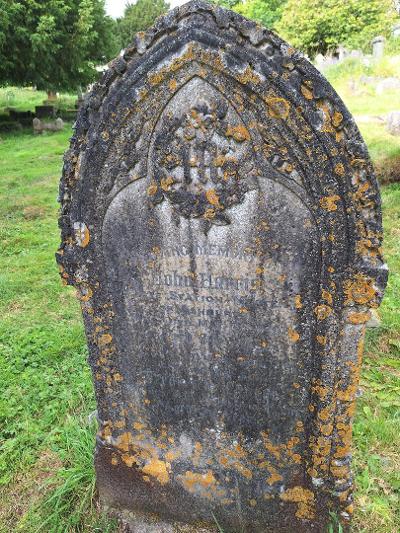
Western Times 19 May 1903, p5 col6
Exeter and Plymouth Gazette 30 June 1903 p6 col1
From the reminiscences of Reg Andrews, born 1893. Many thanks to Dave Hodge-Brooks and Ernie Smerdon for passing these on.
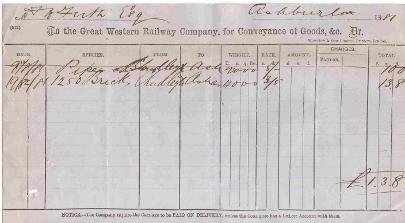
Above: Receipt from the Great Western Railway Company, for conveyance of Goods etc. In this instance solicitor Mr Firth has paid for conveying pipes and bricks from Chudleigh to Ashburton, at a total cost of £1 3s 8d. The goods were heading for Holne Park in 1881.
From my own collection
Some Ashburton residents working on the railway - from the 1911 census
Francis Parsons Bartlett, Signal porter G W Railway
Alec Beavis, Railway engine fireman
George Edgecombe, Engineer railway
Harry Godfrey, Foreman railway engine G W R
George Hannaford, Packer on railway line
George Harry, Railway porter
Thomas Henry Harvey, Packer on G W Railway
Frank Haughins, G W R railway plate layer
Ernest Albert Knight, Railway checker
Daniel John Mann, Railway engine fireman
John Martin, Railway porter
Frank Pook, Railway porter
Alfred Ernest Preston, Cartage agent, G W Railway Co.
Alfred Josiah Stephens, G W Railway guard passenger train
Thomas Towillis, Railway carriage cleaner
In 1912 there was a long discussion during a meeting of the Ashburton Urban District Council concerning the lack of a train on Sundays. It was 'a great inconvenience to naval men and others in the neighbouhood.'
Western Times 9 July 1912 p3 col4
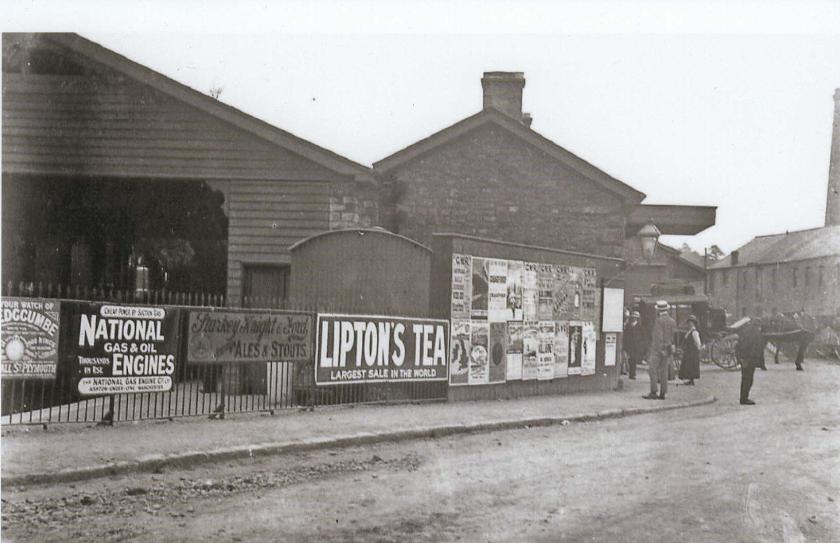
From my own collection
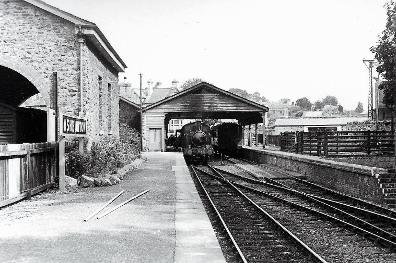
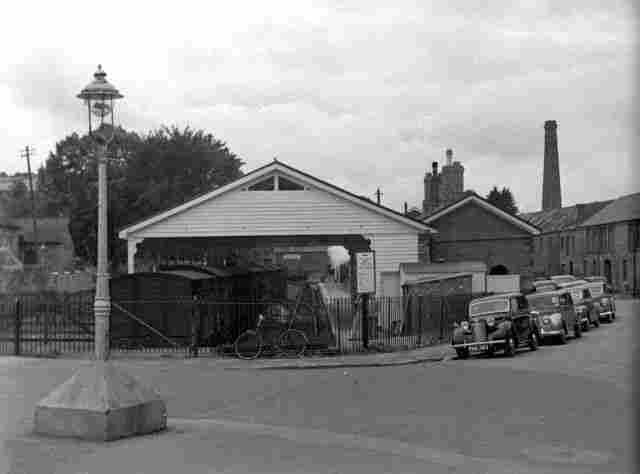
Below: Probably also from the 1950s
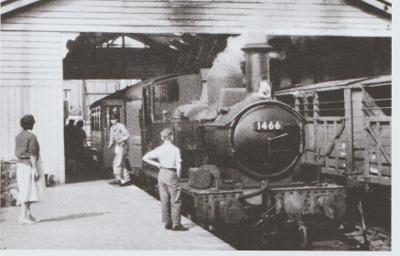
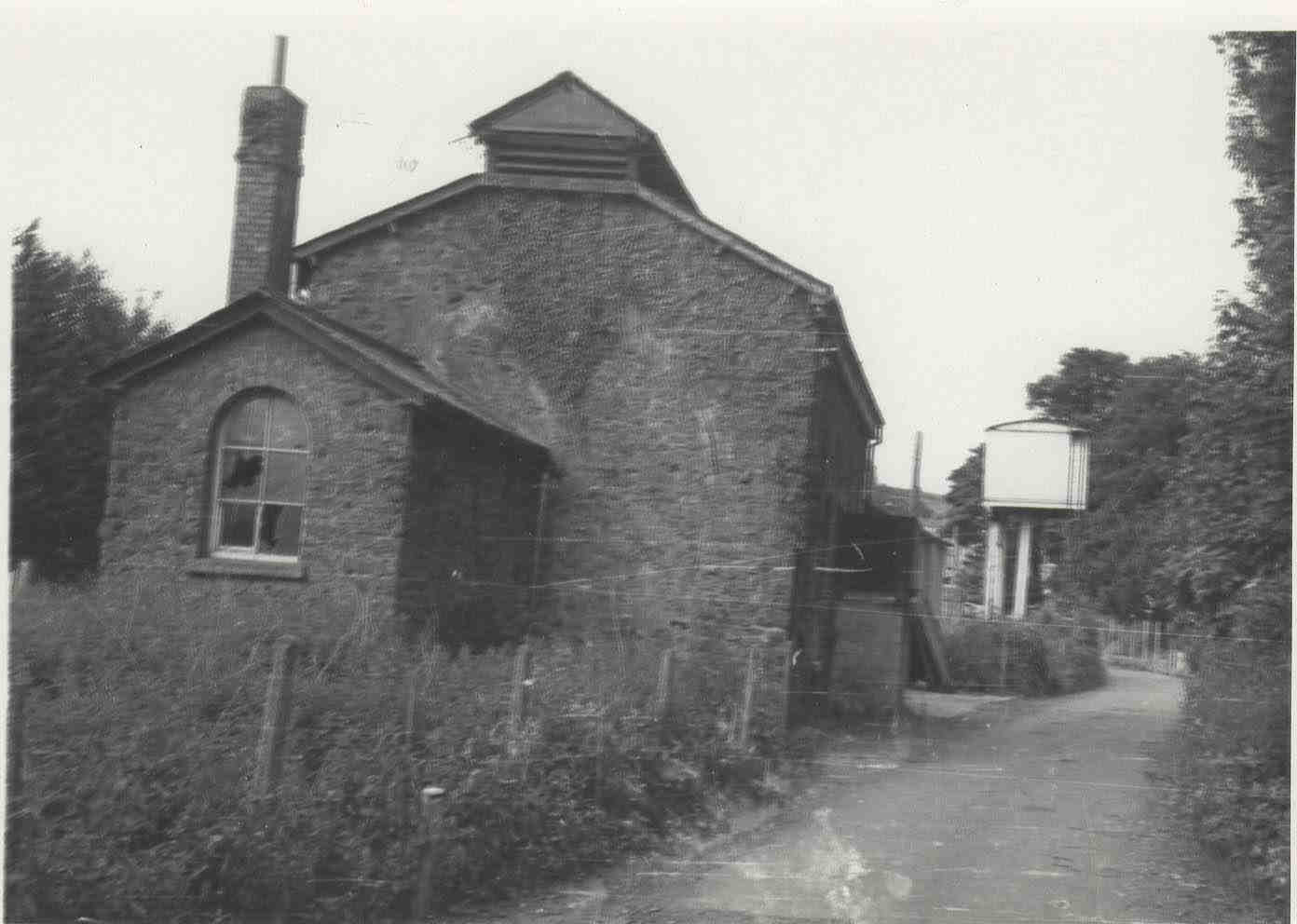
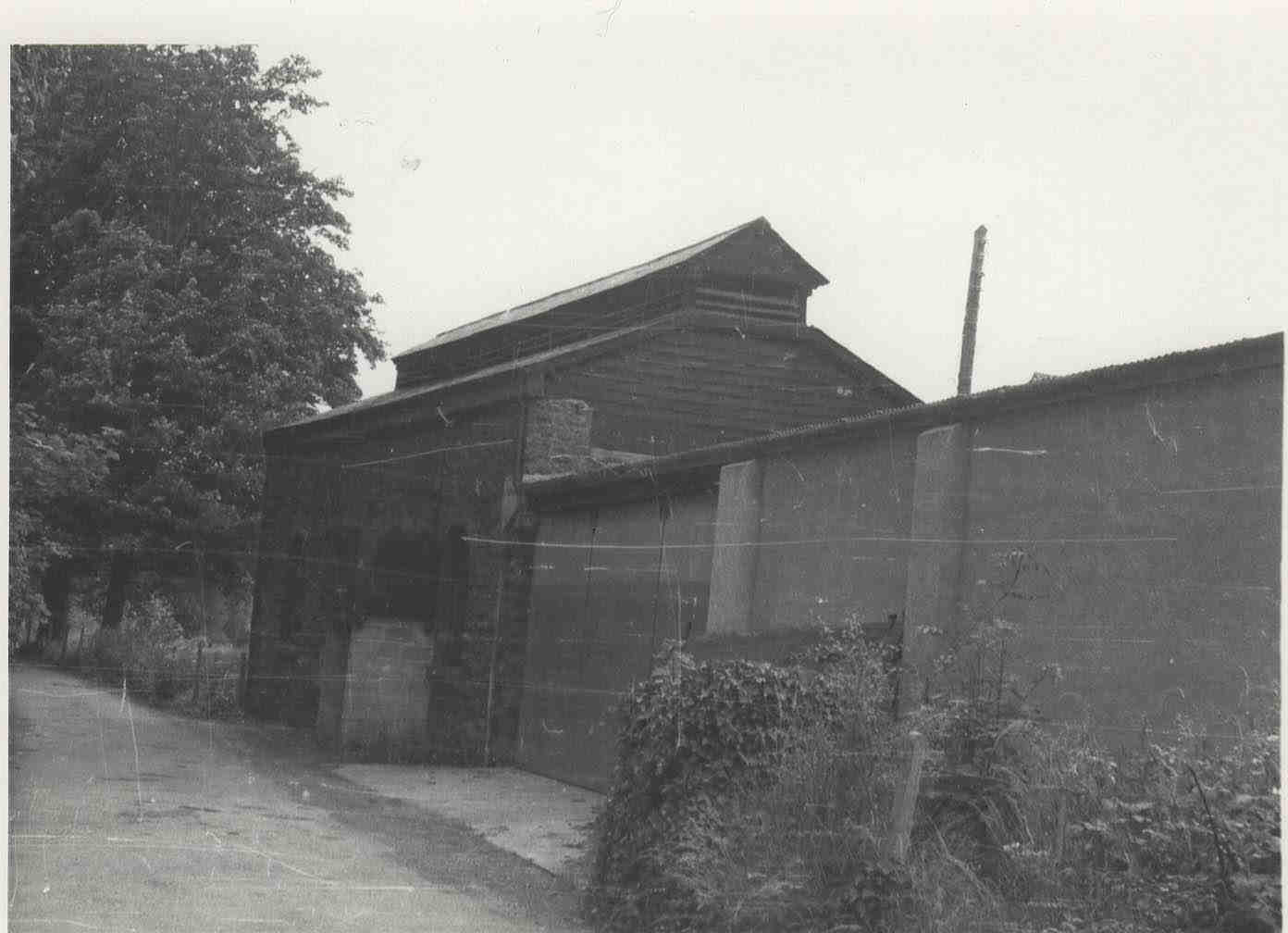
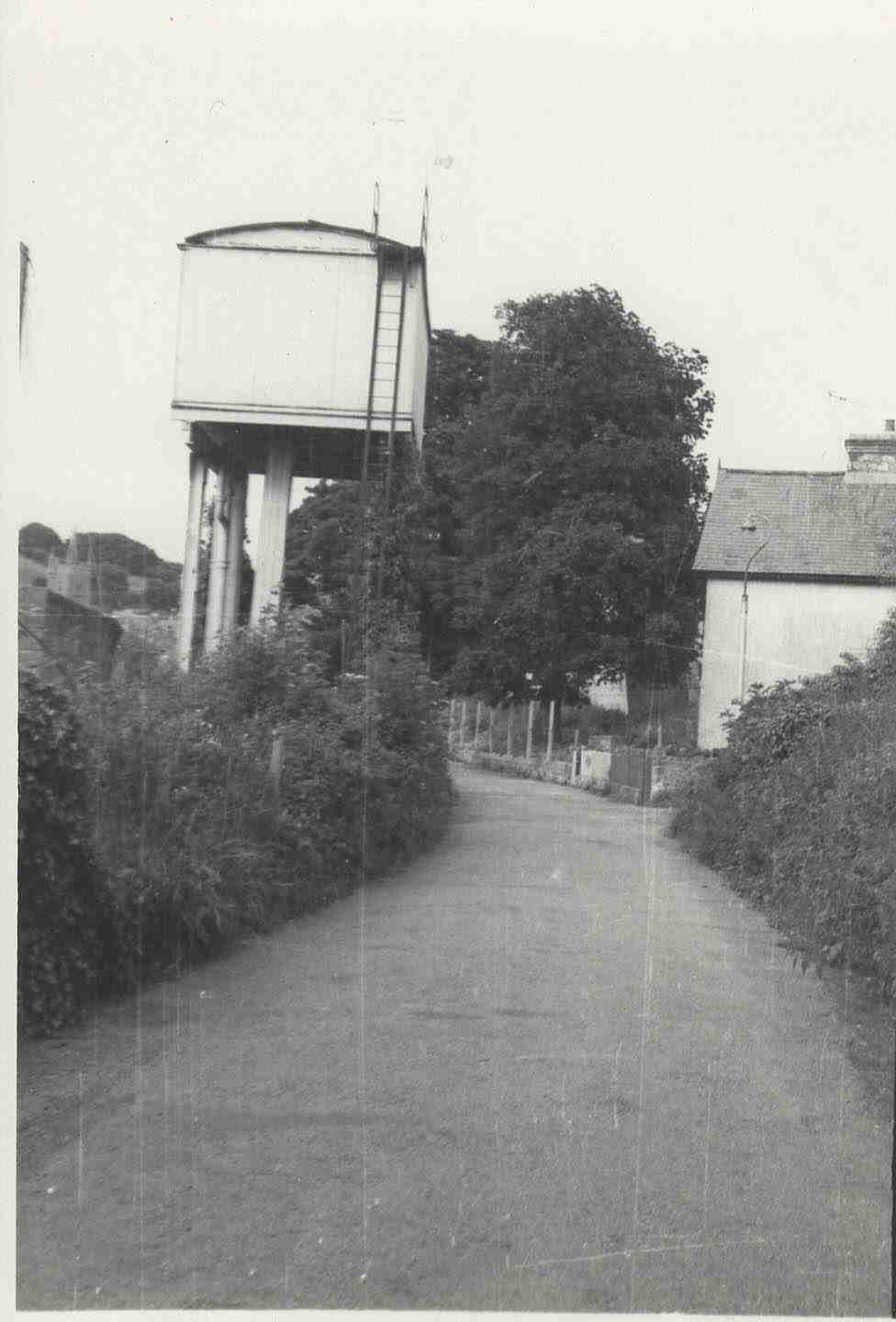
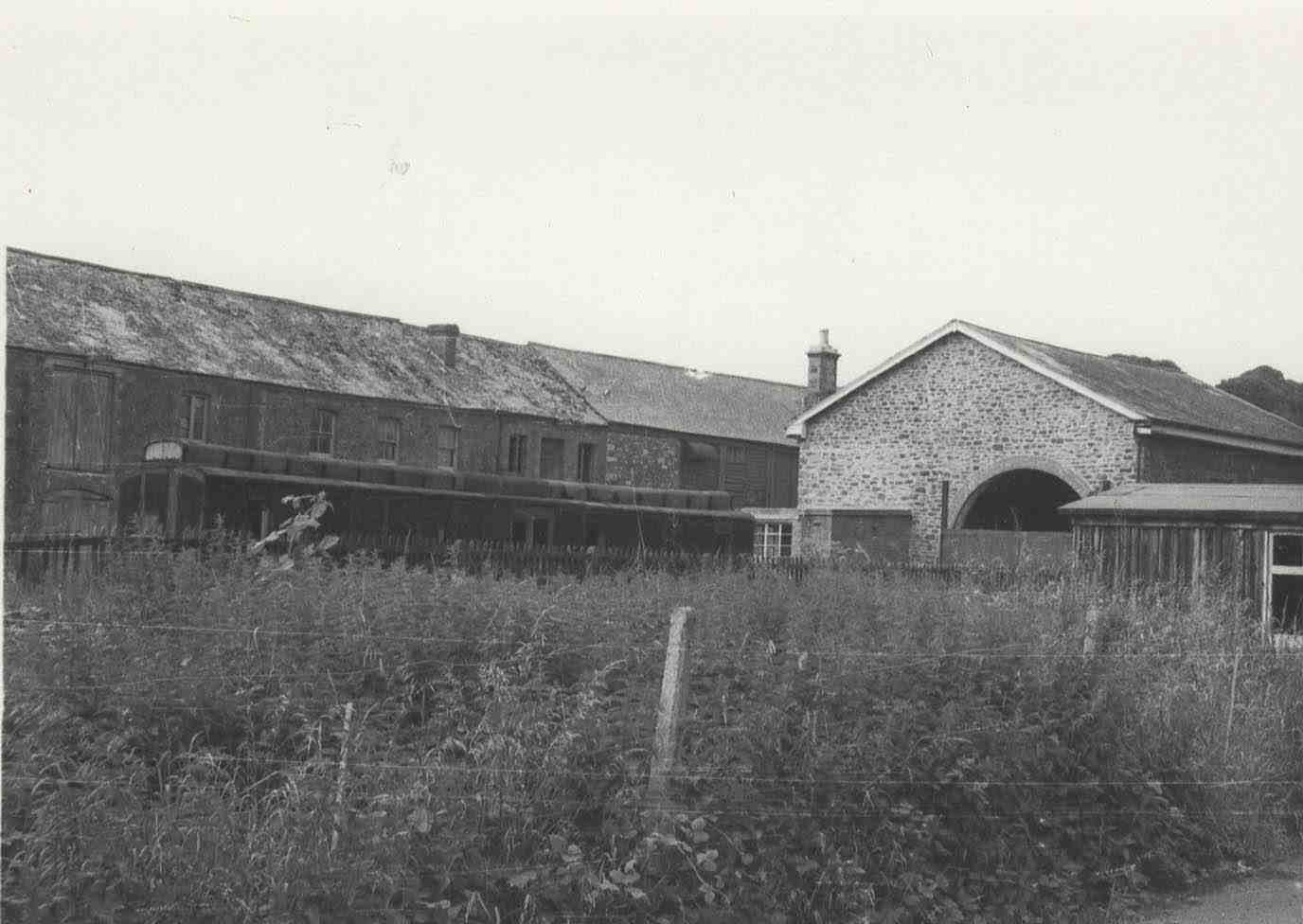
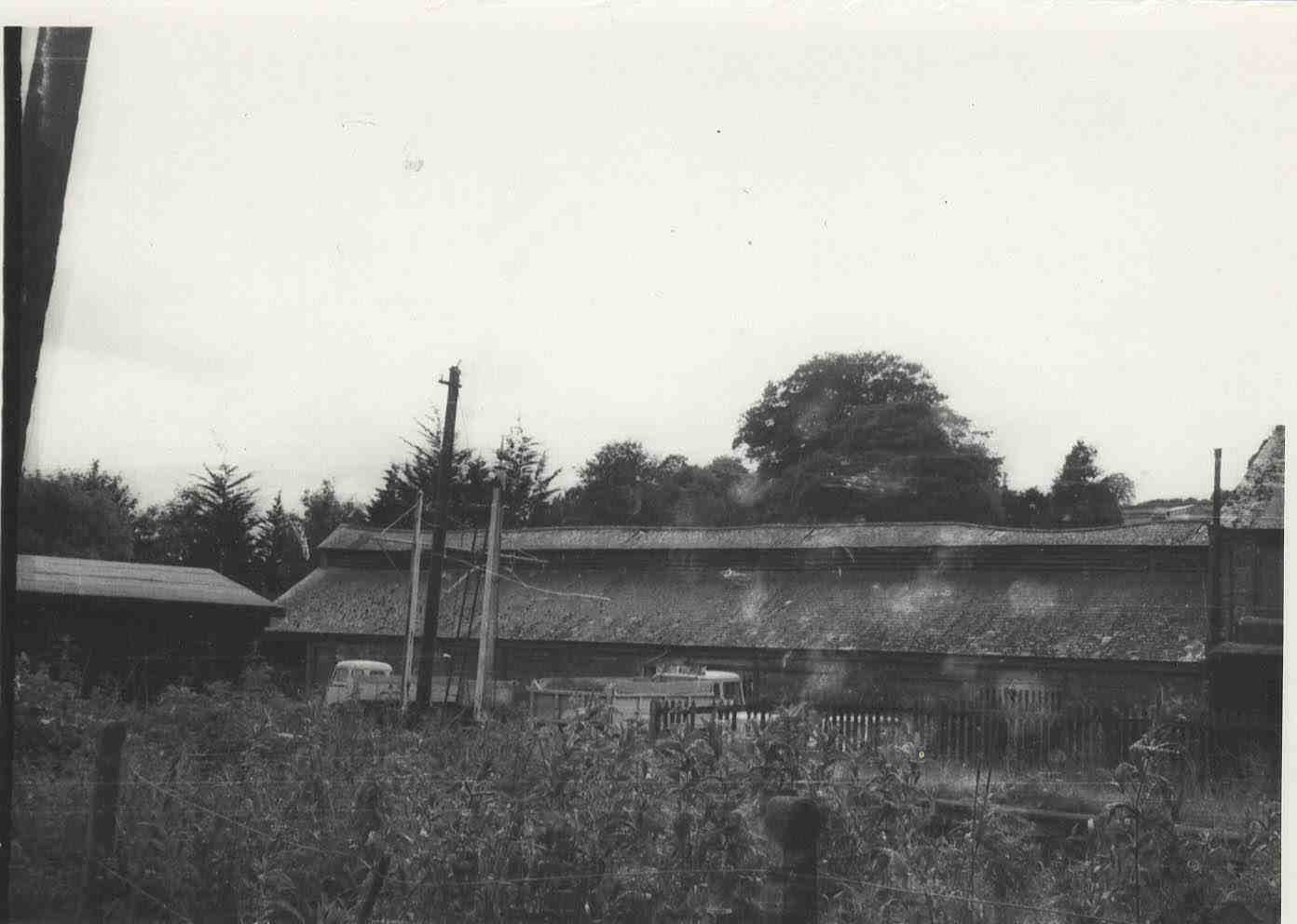
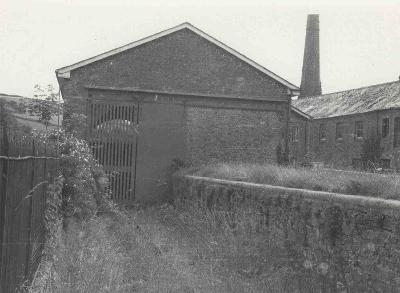
Above and below: Ashburton Station 1964
From my own collection. The photographs are
© R A Ganderton, to whom many thanks for allowing me to use them on this website
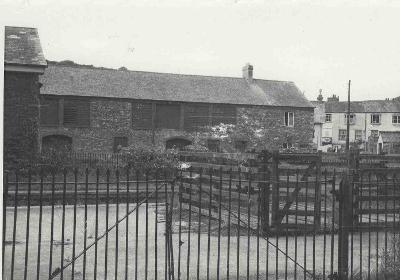
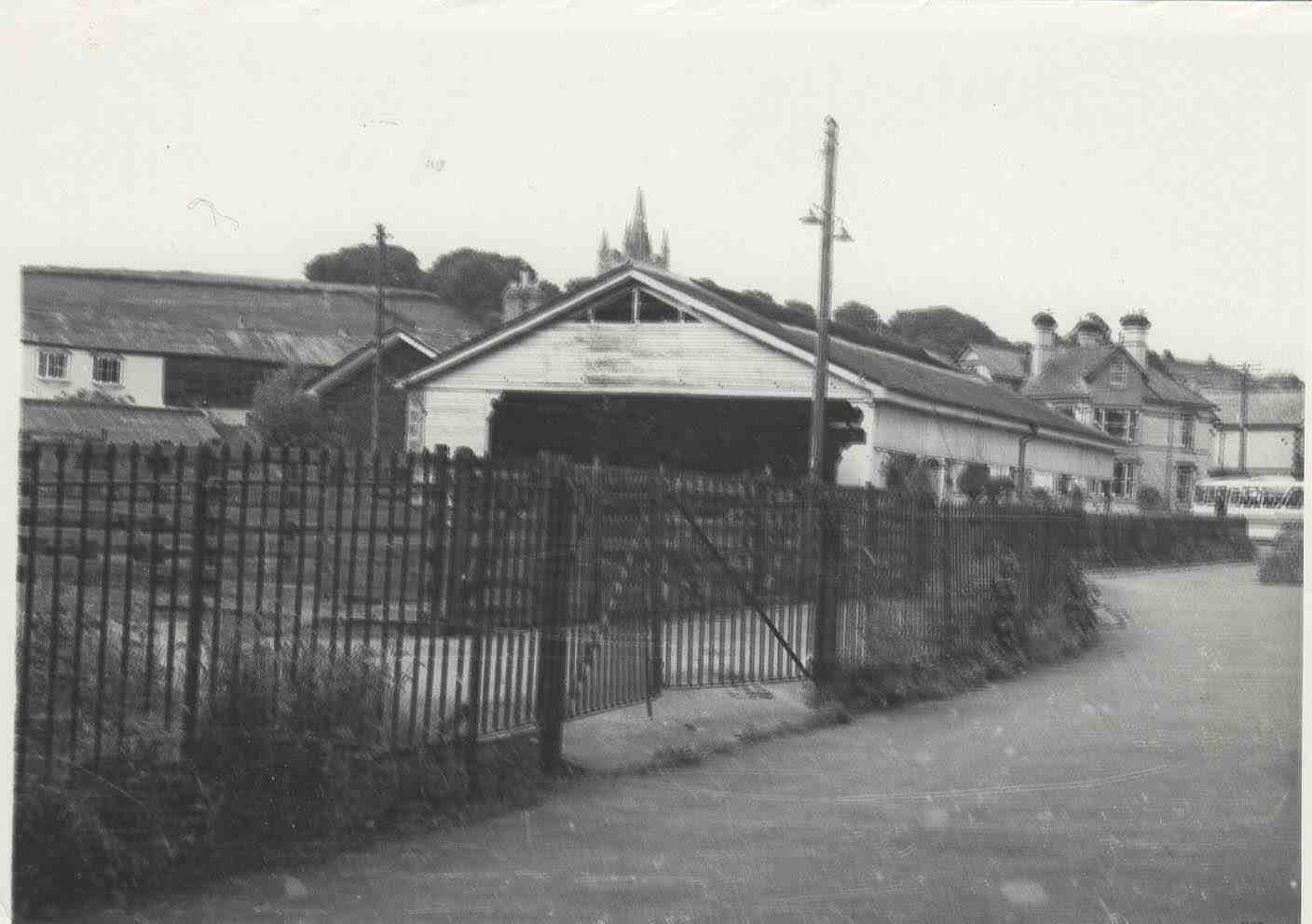
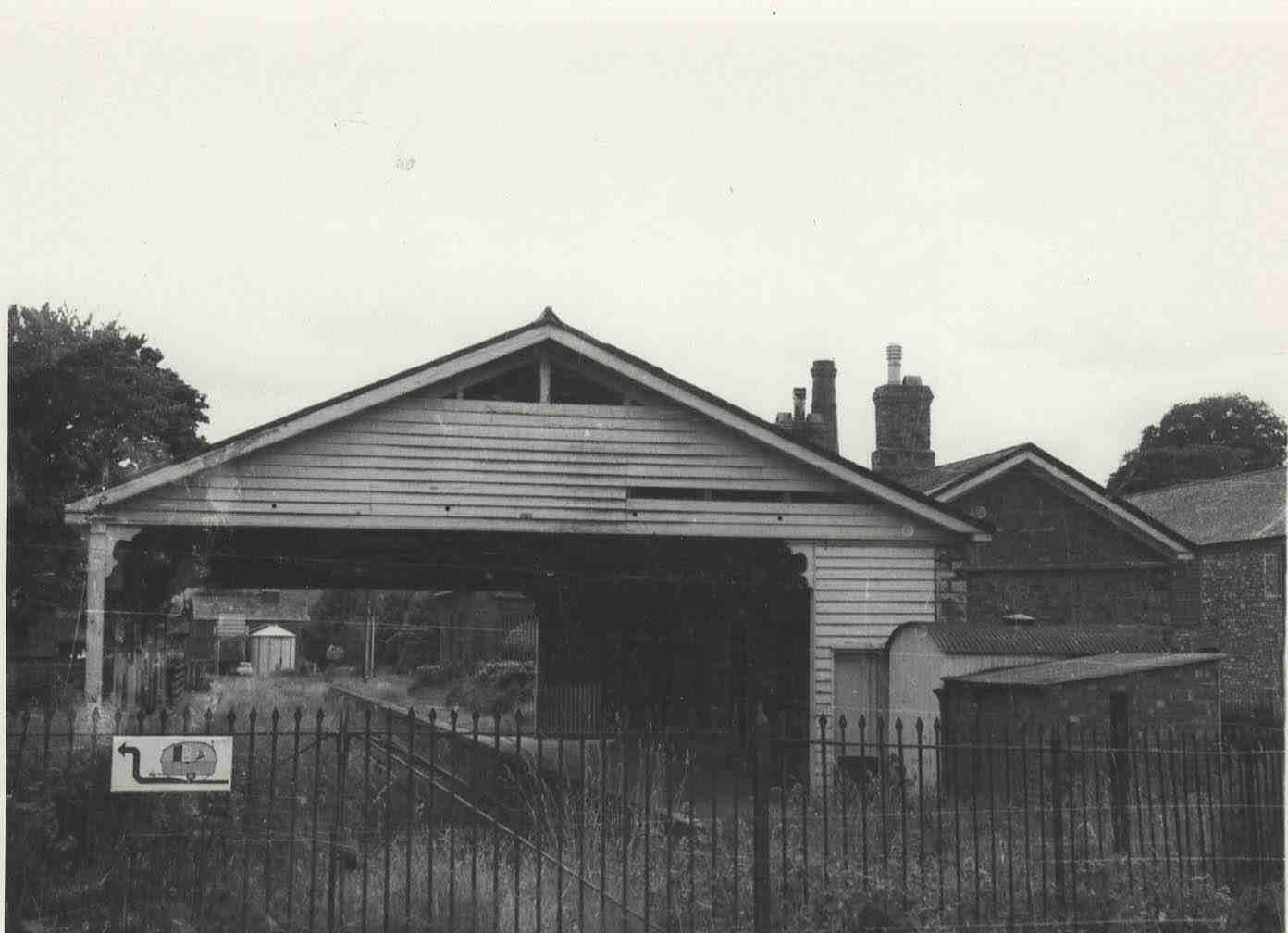
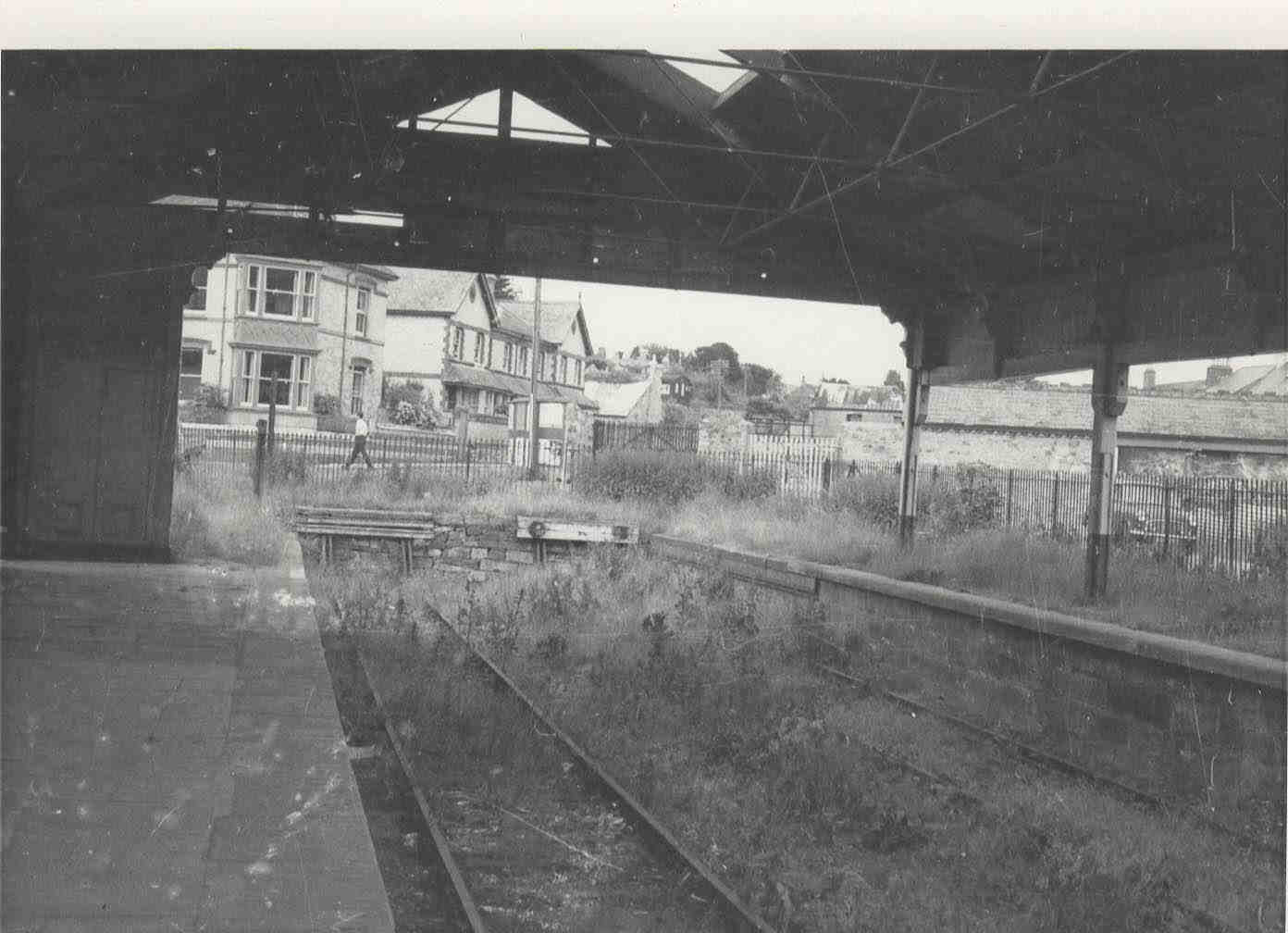
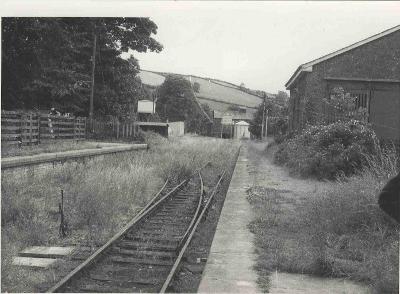
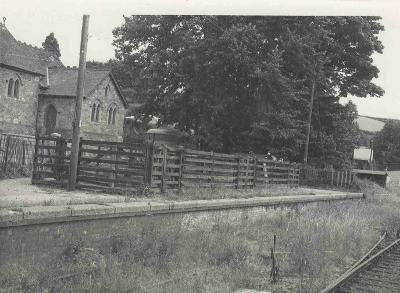
Many thanks to Roy Martin
'We went to tea with [Mr.] and Mrs Cartwright, in their little house next to the station. Then he let me climb into the cab of the steam engine to see the fire and pull the lever that blew the deafeningly loud whistle. The station was a delivery depot for crates of racing pigeons, where they had to be released in order to find their way home. It was thrilling to see the crates opened and the birds exploding into the sky.'
Many thanks to Charles Bazalgette
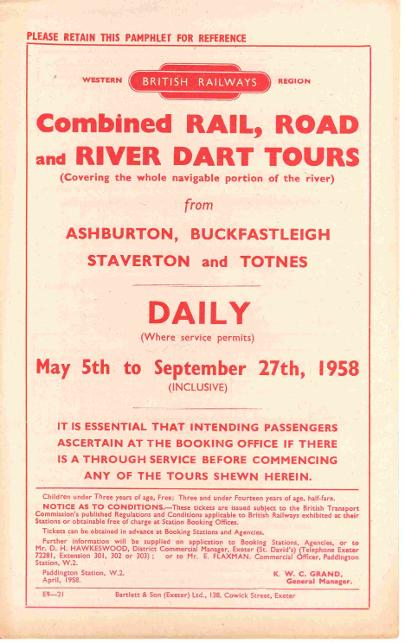
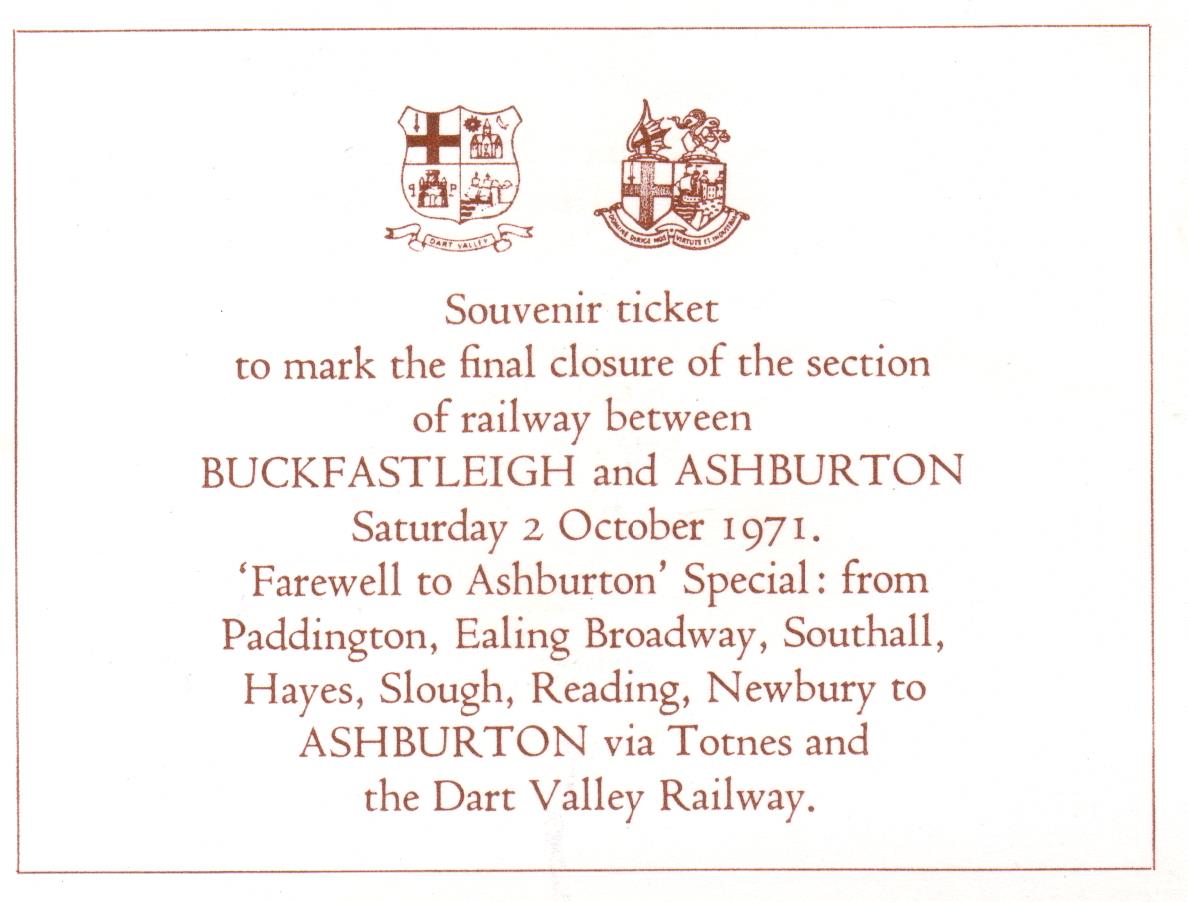
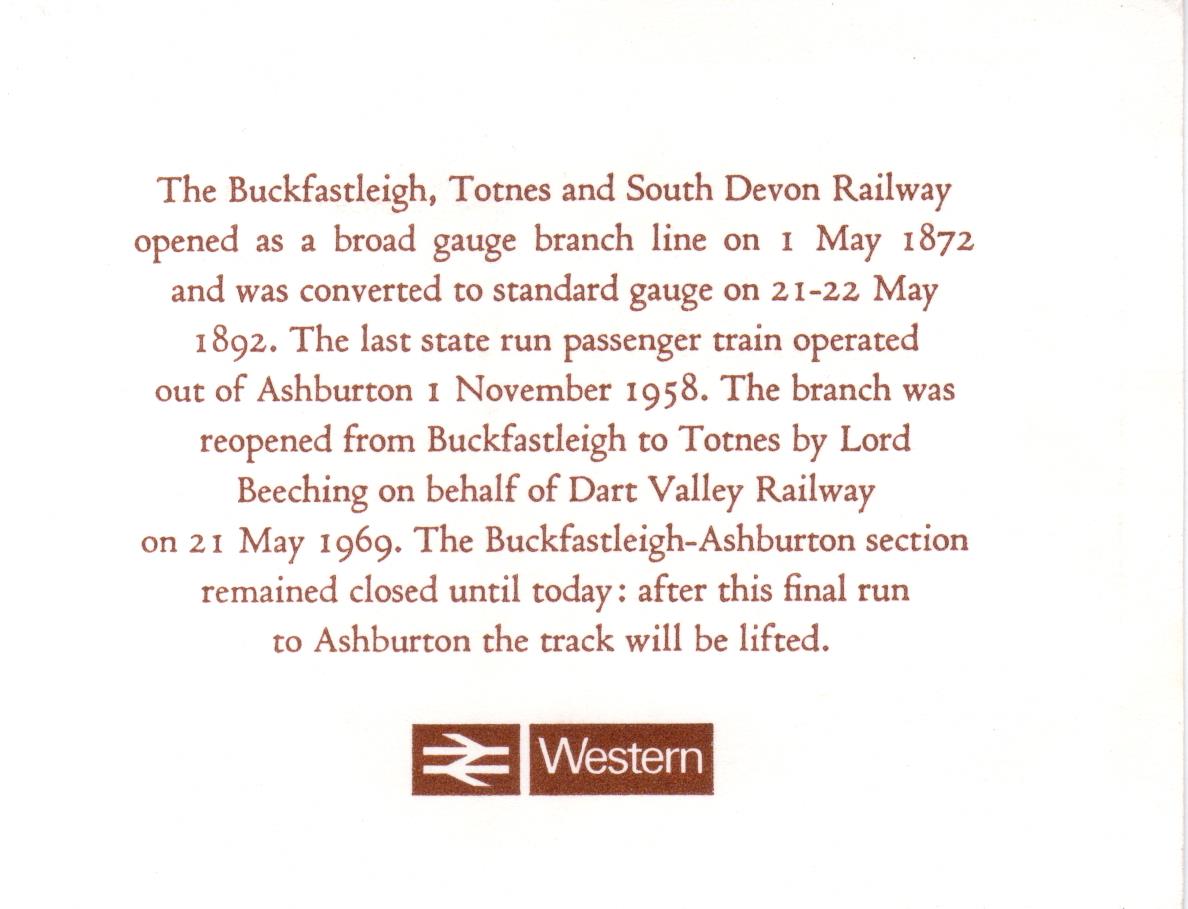
Above: Poster for combined rail and river tours, 1958
From my own collection
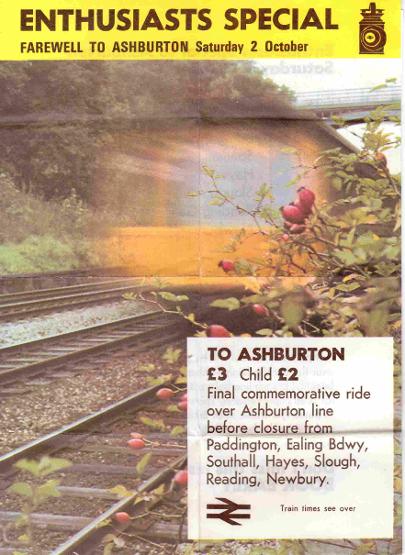
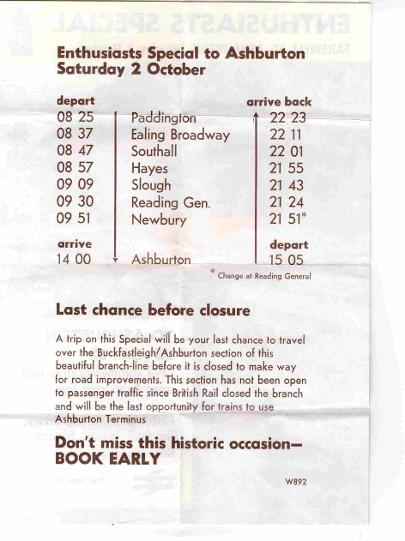
Above items are from my own collection
********
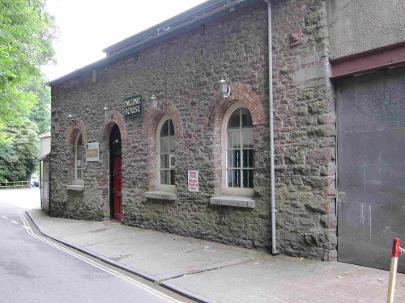
Left: The old engine house
My own photograph 2015
See http://www.cornwallrailwaysociety.org.uk/ashburton-branch---south-devon-railway.html for more pictures of Ashburton Station and the Ashburton/Totnes line.